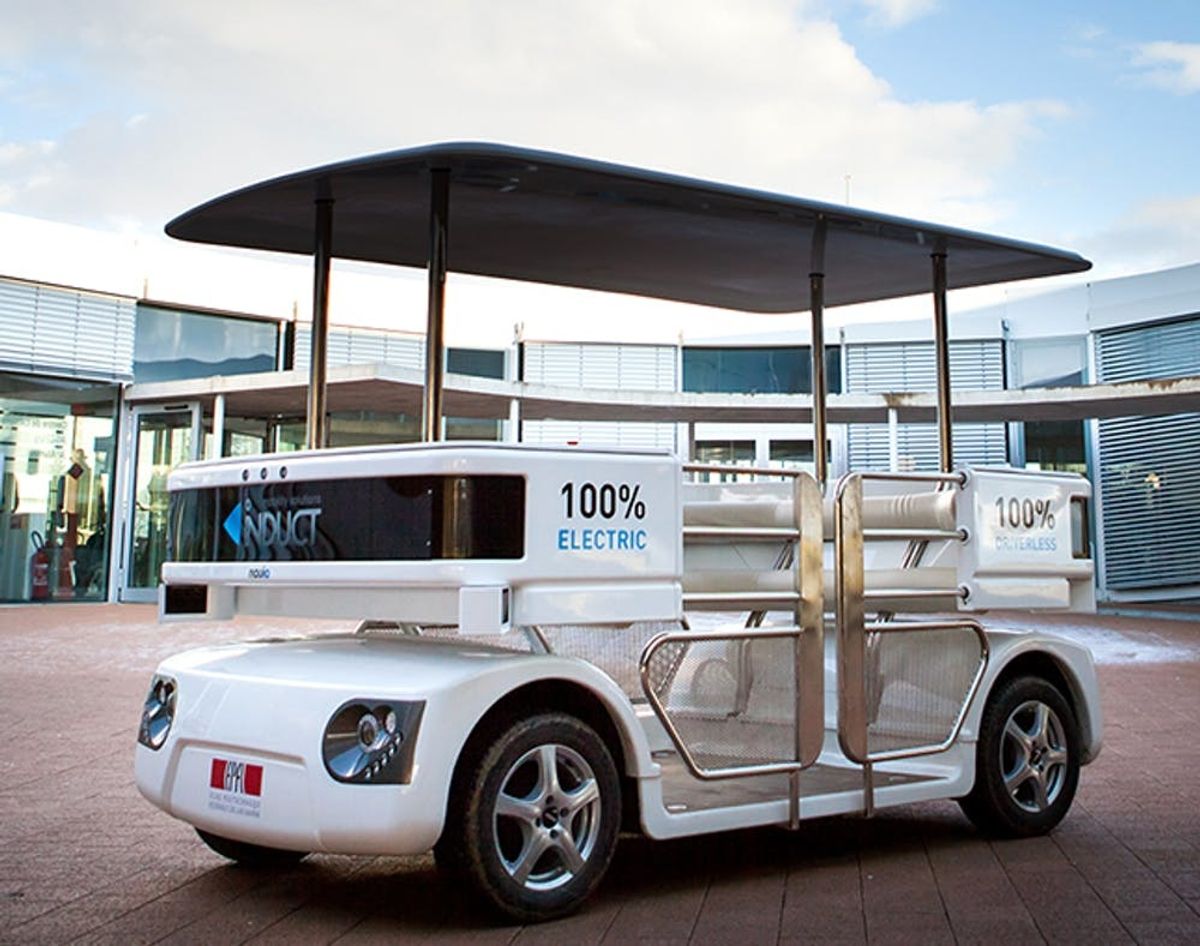Is This the World’s First Driverless Golf Cart?

Today, Google is the company behind your search engine, email, maybe even your wearable of choice, but tomorrow it could be making the car you drive. Or more like not drive, as it imagines you with the keys to a future fleet of 95.4 million self-driving cars — expected to make up about 75% of car sales by 2035.
That’s only 20 years away, so not that long considering things like the World Wide Web and Joe Jonas are already 25 (don’t try to do the math, it will hurt your brain). Plus, Google’s self-driving car has been cruising for years and now, new driverless vehicles are hitting the road overseas.
French company, Indut’s, autonomous electric automobile, the Navia, is currently scooting around seven locations at Oxford University and in city centers in Singapore and across Europe. And they might be looking for a home over here soon too.
Navia isn’t the kind of whip you’d see in your driveway. It looks like a big golf cart and functions more like one of those trolleys that shuttles you from funnel cake to ferris wheel at an amusement park, but that’s the point. It’s revving up to solve the “first and last mile” problem that a lot of commuters face, getting to and from their destinations or chosen forms of mass transit. But doesn’t that vroom over the toes of walking or biking to work or to the train? Not really, since it aims to actually remove private cars from city centers altogether. Pedestrians should dig that.
The electric Navia uses lasers (more specifically, LIDAR — Light Detection and Ranging), GPS and sensors to steer and avoid obstacles like other vehicles or pedestrians. It follows all of the rules of the road and maintains a cool 12.5 mph. Using an app on their smartphones, people can order Navia to pick them up and shuttle them where they’re going. An on-board touchscreen lets you select your destination and the doors automatically open for you once you’re there. It’s free to use now for passengers, but costs the buyer about $250,000.
Indut is trying to get Navia on the streets near us with two vehicles currently demoing in California and in Florida — only two of the four states (+ Michigan and Nevada) where driverless cars are street legal. A boost for your commute might be a little bit farther away, but you could hitch a ride from a vehicle like Navia in a walkable city center, campus, airport, park or even hospital complex in the next couple years.
Where would a driverless vehicle like Navia make sense in your city? Share your thoughts below!
(h/t: Motherboard)











